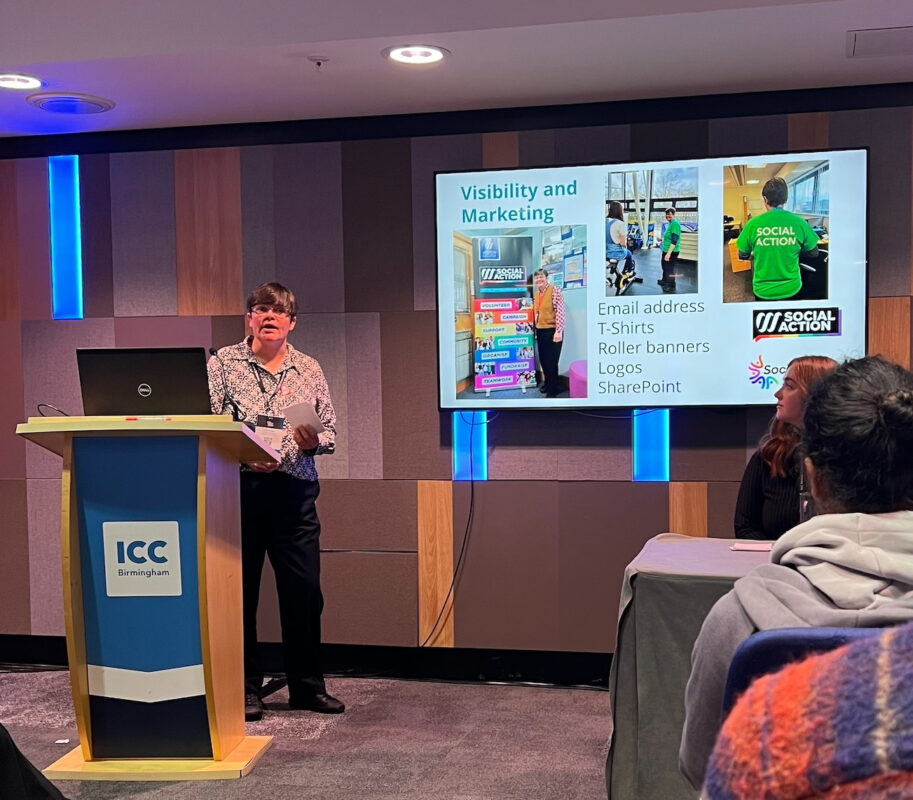Labour’s 5 Missions: How Essential Skills can Translate them into Tangible Outcomes

We believe that a government achieving the 5 missions Labour have set out would indeed make Britain better.
At the Skills Builder Partnership, we have been working towards two of those missions for the last decade. We draw on our experience and that of our partners in education, impact and employment to share how these ambitions could become a reality.
Breaking down the barriers to opportunity at every stage
The Skills Builder Partnership exists to break down the barriers to opportunity at every stage. The research shows that low levels of essential skills – those highly transferable skills that you need for practically any job – are one of the primary barriers to achieving life outcomes. A lack of high-quality opportunities to build essential skills creates a skills trap: lower levels of essential skills mean people go into lower skilled, lower paid jobs that in turn provide fewer opportunities to build skills, leading to lower job satisfaction, lower life satisfaction and lower social mobility.
Our education system needs to provide these high-quality opportunities to build essential skills if it is to adequately prepare young people for work and life. Thousands of schools in the UK have realised this already, and build their students’ essential skills using the Skills Builder Universal Framework following our six principles of best practice.
The recent Labour Council of Skills Advisors’ report backed this approach. To prepare young people for work and life it recommends that essential skills form a key part of a new curriculum and should be taught with the structure provided by the Skills Builder Universal framework.
But we can’t stop at the school gate. That’s why Skills Builder works across every stage of life: from education, through employability and employment. It’s why over 150 social impact organisations along with employers large and small have adopted the Universal framework for essential skills – to ensure that no matter what stage an individual is at in their life, there is a coherent and cohesive approach to understanding and building their skills.
Securing the highest growth in the G7
Securing the highest growth in the G7 is a big ambition. In the context of the UK’s ‘productivity puzzle’ – UK productivity has been stagnant for the last 20 years or so – driving productivity growth will be challenging.
Upcoming research in the Essential Skills Tracker – launching on 7th March – will show that low levels of essential skills are a missing piece in that productivity puzzle. Any government targeting rapid improvements in productivity should take action to address the £22.2bn cost of low essential skills to the UK economy in 2022. This is similar to the £28bn cost of low numeracy, but the difference is there are still so many gains to be made in improving essential skills by simply recognising they exist and making an explicit and rigorous attempt at building them.
Good jobs are a core component of solving the productivity puzzle. A high-skilled economy requires investment in skills in a way that is coherent, structured and consistent. For the average worker, even holding all else constant, higher levels of essential skills deliver a £4,600 annual wage premium. Training and qualifications are of course vital, but they are only part of the picture. Good jobs require good job design, transparent recruitment and lifelong learning.
Making it happen
There are four steps a government could take to translate the ambitions into reality:
- Adopt a coherent skills taxonomy, with essential skills sitting alongside basic skills and technical skills.
- Have a consistent approach to these skills across government. As Lord Blunkett recently pointed out, there are at least 49 skills schemes across 9 government departments. In practice, that means creating a cohesive skills journey across individuals’ lives, using the same skills taxonomies in schools as in job centres.
- Build off the work of over 850 education institutions, impact organisations and employers backing the Skills Builder Universal Framework to build essential skills, by consistently building it into all government skills initiatives.
- In 2022 alone, those 850 organisations delivered 2.3 million high-quality skills building opportunities using the Universal framework across education, employment and social impact. Work with us to make that 20 million.
The research shows that ambitions to drive growth while breaking down barriers to opportunity are unlikely to achieve their potential without a complete approach to skills that includes essential skills with rigour.
Tom Ravenscroft, founder and CEO of Skills Builder Partnership, said:
“For decades employers have reported both that essential skills like speaking, creativity and teamwork are central to their growth, and also that there are significant gaps in these skills. For decades, teachers have reported how important essential skills are in the classroom.
The latest evidence shows that essential skills play a central role in social mobility. Those from less advantaged backgrounds who have opportunities to build essential skills escape the skills trap by realising the potential of their other skills. They end up in higher skilled, higher paid jobs and enjoy higher job and life satisfaction.
And yet despite the overwhelming case for action, as a country we have seen so little progress in this area. A government that is serious about delivering on ambitions of productivity growth, preparing young people for life and work and creating better jobs for them to go into, needs to be serious about essential skills.”
About Skills Builder Partnership
The Skills Builder Partnership leads a global movement of 850+ employers, educators and social impact organisations all working to ensure that one day everyone builds the essential skills to succeed.
Tom Ravenscroft founded Skills Builder working as a teacher in Hackney, after seeing there was something fundamental missing in education. Students were leaving school completely unprepared for life or work, without basic self-management and communication skills.
Fast forward to 2023 and the Skills Builder Partnership delivered 2.4 million high quality opportunities to build essential skills in the last year alone. The Universal Framework for essential skills and the Skills Builder approach are the leading global ways that employers, educators and impact organisations are building essential skills. In the UK, 87% of secondary schools and colleges have a touchpoint with the framework.











Responses